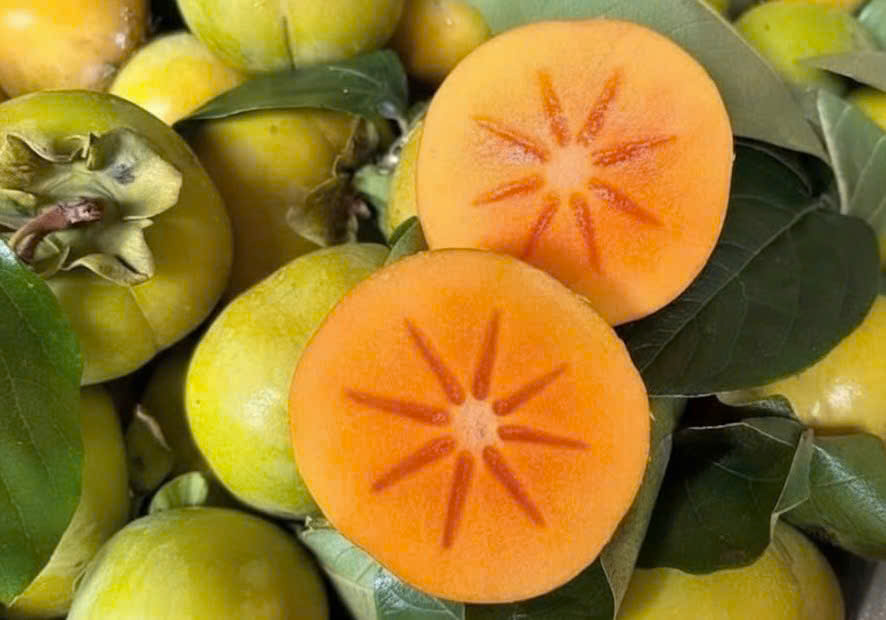Crisp persimmons, a hallmark of autumn, have thin skin and sweet, crisp flesh. They can be eaten fresh, added to salads, dried, or made into jams and pastries. Dr. Nguyen Anh Duy Tung, a specialist in dietetics and nutrition at Tam Anh General Clinic, District 7, notes that 100g of fresh crisp persimmon contains approximately 70 calories, 0.6g of protein, 0.2g of fat, 19g of carbohydrates, 3.6g of fiber, and 16g of natural sugars. This fruit is not only delicious but also offers numerous health benefits.
Rich in antioxidants and anti-inflammatory properties. Crisp persimmons are packed with antioxidants such as beta-carotene, lycopene, and flavonoids. These compounds neutralize free radicals, reducing oxidative stress—a factor contributing to premature aging and various chronic diseases. The polyphenols in persimmons help reduce inflammation in the body, aiding in the prevention of heart disease, type 2 diabetes, and some cancers.
Protecting cardiovascular health. The soluble fiber pectin in crisp persimmons lowers bad cholesterol (LDL) and increases good cholesterol (HDL). The potassium content also helps regulate blood pressure, reducing strain on the cardiovascular system.
Regular persimmon consumption improves blood circulation and reduces the risk of atherosclerosis and stroke.
 |
Eating 1-2 crisp persimmons daily is good for health. Photo: Trong Nghia |
Beneficial for vision. Crisp persimmons are rich in vitamin A and lutein, essential nutrients for eye health. Vitamin A protects the cornea, reducing the risk of dry eyes, while lutein helps prevent macular degeneration and cataracts in older adults.
Aiding digestion. A medium crisp persimmon contains about 6g of fiber—nearly 20% of the recommended daily intake. Fiber promotes regular bowel movements, prevents constipation, and nourishes beneficial gut bacteria. Soluble fiber also helps control blood sugar levels after meals, benefiting individuals with prediabetes or type 2 diabetes.
Boosting immunity. The vitamin C in crisp persimmons stimulates white blood cell production, helping the body fight off bacteria and viruses. Eating persimmons during the fall and winter, when the weather is cold and immunity is lowered, can reduce the risk of respiratory infections.
Good for the skin. The antioxidants and vitamin C in crisp persimmons protect the skin from UV damage, reduce wrinkle formation, and stimulate collagen production. This helps maintain skin elasticity and a youthful appearance.
Dr. Duy Tung recommends that although crisp persimmons are rich in nutrients, excessive consumption (more than two per day) should be avoided. The tannins in persimmons can cause constipation or intestinal blockage in individuals with digestive issues. People with diabetes or dyslipidemia should consult a nutritionist for personalized dietary guidance.
Trong Nghia
| Readers can submit nutrition-related questions here for doctor's answers. |












